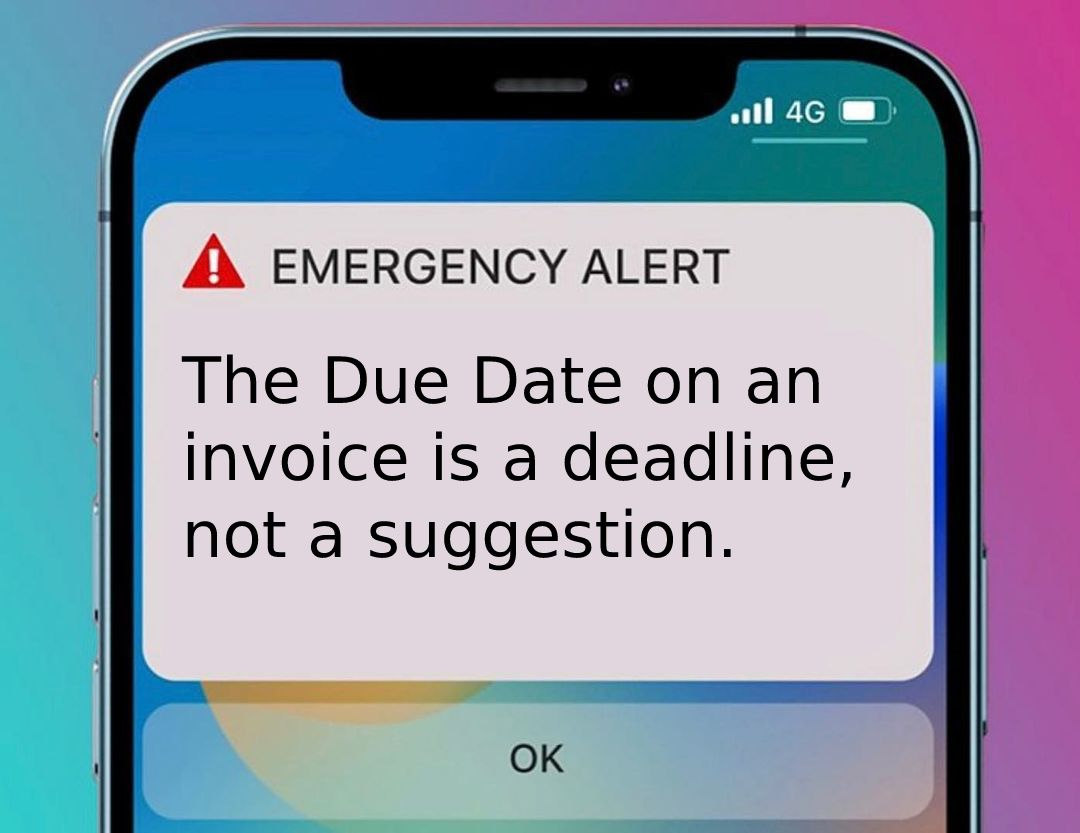Late Payment of Commercial Debts (Interest) Act
As a business owner or someone responsible for the finances of a business, it's important to maintain a healthy cash flow for the smooth operation of your company. However, late payments from clients can disrupt your financial stability and hinder your growth. To address this issue, the Late Payment of Commercial Debts (Interest) Act comes into play. In this blog, we'll provide a clear and concise explanation of the Act, covering both the application of late payment interest and costs.
Late payments have long been a prevalent issue in commercial transactions, affecting businesses of all sizes. Recognising the detrimental impact of late payments, the Late Payment of Commercial Debts (Interest) Act was introduced. The Act was enacted to promote prompt payment, protect businesses from cash flow disruptions, and address the challenges faced, especially by small and medium-sized enterprises (SMEs).
Late payments can have severe consequences for businesses. They can lead to cash flow problems, hinder investment opportunities, strain relationships with suppliers, and even jeopardise the survival of SMEs. The Act aims to level the playing field by establishing a legal framework that encourages timely payment, provides recourse for businesses facing late payments, and enables them to recover costs incurred due to late payment. That said, a lot of businesses do not take full advantage of the Act because they are afraid it will have a negative impact on the relationship with their clients. At this point, it’s worth reading our article about Effective Strategies for Reducing Outstanding Debts for SME Businesses
What is the Late Payment of Commercial Debts (Interest) Act? The Late Payment of Commercial Debts (Interest) Act is a legislation that aims to encourage timely payments between businesses and provides a framework for charging interest and recovering costs in case of late payment. The Act applies to commercial transactions in the UK, involving the supply of goods and services where there is no express agreement regarding payment terms.
Do you have a Question for us?
Applying Late Payment Interest:
- Statutory Interest Rate: Under the Act, businesses are entitled to charge interest on late payments at a statutory interest rate. The current rate is 8% plus the Bank of England base rate. However, it's essential to keep an eye on any updates or changes to the statutory interest rate to ensure compliance.
- Triggering Late Payment Interest: Late payment interest can be charged when a payment becomes overdue. The Act sets a standard period of 30 days for the payment to be made unless there is a different agreement in place. If the payment is not received within this period, interest can be claimed from the day after the payment was due.
- Calculating Late Payment Interest: To calculate late payment interest, you need to determine the number of days the payment is overdue and multiply it by the daily interest rate. The daily rate is calculated by dividing the annual interest rate by 365.
- Communicating Late Payment Interest: When issuing an invoice, it's advisable to include clear terms and conditions that outline the statutory right to charge interest on late payments. This helps to inform your clients of the consequences of late payment and encourages timely settlement.
Recovering Costs:
- Fixed Sum for Debt Recovery: In addition to late payment interest, the Act allows businesses to claim a fixed sum as compensation for the costs incurred due to late payment. This fixed sum ranges from £40 to £100, depending on the size of the debt. For debts below £1,000, the fixed sum is £40; for debts between £1,000 and £10,000, it is £70, and for debts above £10,000, it is £100.
- Debt Recovery Costs: If you need to resort to external help, such as hiring a debt collection agency or employing legal assistance to recover the debt, you can also claim reasonable costs incurred in the recovery process in accordance with section 5A(2A) of the Act. These costs should be reasonable and directly related to the recovery of the debt. It's crucial to maintain proper documentation and evidence of these costs to support your claim.
Best Practices and Considerations:
- Clear Payment Terms: To avoid confusion or disputes, clearly communicate your payment terms to clients from the outset. This includes specifying payment due dates, preferred payment methods, and any potential consequences for late payments.
- Timely Invoicing: Send out invoices promptly after delivering goods or completing services. The sooner you invoice, the sooner you can expect payment. Consider utilising electronic invoicing systems to streamline the process and reduce delays.
- Consistent Follow-up: Regularly monitor your receivables and follow up on any overdue payments. It's advisable to have a defined procedure in place for reminders, escalation, and pursuing legal action if necessary. Maintaining professional relationships while asserting your rights is crucial.
- Seek Professional Advice: If you encounter complex situations or face difficulties in debt recovery, it's advisable to seek professional advice from legal experts or debt collection professionals. They can provide guidance tailored to your specific circumstances and ensure compliance with the Late Payment of Commercial Debts (Interest) Act.
Conclusion: The Late Payment of Commercial Debts (Interest) Act is a powerful tool for business owners to protect their financial interests and encourage timely payments. By understanding the Act's provisions regarding late payment interest and costs, you can confidently address late payment issues and maintain a healthy cash flow. Remember to communicate your payment terms clearly, be proactive in managing your receivables, and seek professional advice when needed. With these measures in place, you can navigate the challenges of late payments and promote a sustainable business environment.






